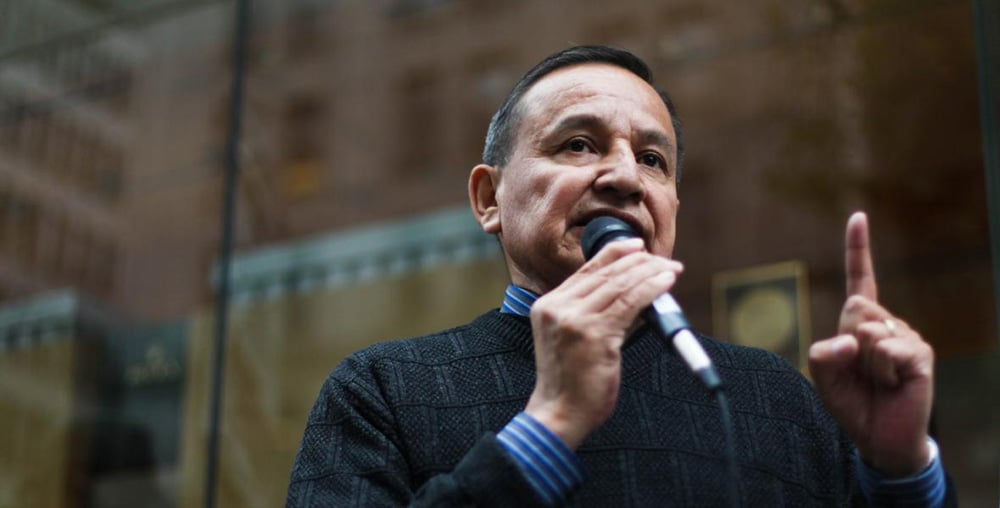Over the past weeks, news has circulated about more Indigenous children found buried at residential schools across the country. A wave of emotion has swept across social media in response. People have expressed profound sadness and grief, a numb recognition of known truths, and of course, overwhelming anger.
Accompanying these strong reactions, something has also begun to change. The horror and shock have turned into a newfound acceptance by some resistant Canadians that genocide had been the right word all along. Now, people want to know what can be done to make things right.
Yet, just days after the announcement about the Kamloops Indian Residential School, the federal government was back in court fighting against a compensation order by the Canadian Human Rights Tribunal to close the funding gap between Canadian and Indigenous children. The court found this gap to undermine principles of equity and lead to devastating family separation and loss, again.
Some commentators pointed out that it was easier for Prime Minister Trudeau to appoint an Inuk Governor General than to, you know, make good on his promise to fix over 100 boil water advisories on reserves across the country, or act on a single Truth and Reconciliation Call to Action this past year. In a time of national mourning, Canada appeared to be doubling down on the colonial relationship, instead of making things right.
As Cindy Blackstock and Pamela Palmater recently wrote in the Guardian, no one seems to be taking any responsibility: “The Catholic church has sent prayers, but has refused to issue a papal apology or make proper financial reparations to survivors and disclose residential school records.”
For Indigenous peoples, and those of us who work with Indigenous peoples, the blueprints for change exist, and have been carefully charted for decades. Without question, every single one of these plans implemented — from Splatsin’s child welfare program to Heiltsuk’s control of the herring fishery — have been victories against the status quo.
But the status quo had to be vigorously and relentlessly shouldered out of the way by communities first, to make real change happen. In Canada, it is the status quo that is the enemy, not some hidden secret bogeyman. Colonization is precisely the imposition of colonial institutions and the violence they produce in people’s daily lives. The call for deep structural change at this moment is a call for freedom from this ongoing harm.
Perhaps because the status quo suits a lot of people’s interests, there will always be people who rush into the waves of social change and try to pull the tide back. This effort is not always explicit. Rather those pushing for change are told to respect “the process,” or they are criticized for their protest strategies, or their language is policed and sanitized. The status quo defenders position themselves as authorities on the appropriate ways to call for justice, even when they have not been a part of these movements and have no skin in the game.
What does this deflection look like? Colin Kaepernick took a knee at NFL football games in protest of police brutality and the killings of Black people by the police in America. He captured people’s faux outrage against him in a shirt: “We March Y'all Mad. We Sit Down, Y’all Mad. We Speak Up, Ya’ll Mad. We Die, Y’all Silent.”
Likewise, the current uproar around BC Civil Liberties Association executive director Harsha Walia’s tweet to “burn it all down” — in response to a news report of two churches burning, amidst reports of more unmarked graves found — is more pearl clutching. “Burn it all down” is part of a lexicon of social movements going back two centuries. As historian Sean Carleton notes, this phrase signals “not the ‘ignition’ of actual, literal fires. Rather, drawing on the long tradition of that phraseology, it means burning down the structures of injustice to create better futures.”
This is a moment for real change, but we must all become wise to the ways these opportunities are derailed by power and indifferent bystanders. Thousands of people made the same demand for structural change: why is a high-profile woman of colour the one who is being taken down? Don’t let the sexist, racist bullies ready to jump on a volatile bandwagon act like the victims here, or make those fighting for change out to be the enemies. Put this country, the perpetrator of decades of systemic oppression and institutionalized racism and genocide, on the hook instead. ![]()
Read more: Indigenous, Rights + Justice, Federal Politics















Tyee Commenting Guidelines
Comments that violate guidelines risk being deleted, and violations may result in a temporary or permanent user ban. Maintain the spirit of good conversation to stay in the discussion.
*Please note The Tyee is not a forum for spreading misinformation about COVID-19, denying its existence or minimizing its risk to public health.
Do:
Do not: